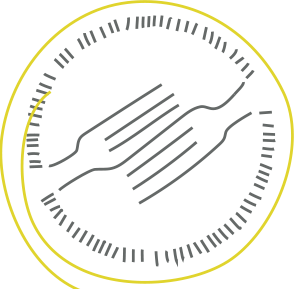The "Power" of Processed Protein
Our nation is protein-obsessed—we are literally brainwashed into thinking that high protein promotes weight loss (as in the Atkins Diet, the Zone or even the South Beach Diet). Or that protein pre-workout and post workout is critical for muscle gain. We cower at carbs and fear fat. We think protein is so powerful that we consume it in shakes, in bars, in breads, cereals and snacks like chips, cookies, cakes and more—the many places that it is not naturally found. Kind of crazy! Why don’t we just eat foods with unmanufactured protein like high quality fish, poultry, meats, eggs, dairy, beans, nuts and seeds (and even some grains)? For starters, the packaged stuff is an easy grab—American’s LOVE convenience; the folks who make the stuff want us to believe it is superior to real food cause the protein is more “available” and absorbable (the fitness fanatics love this); and last, but surely not least, it tastes good!
Where Does it Come From and How is it Made?
Whether in a powder or a small package, the foundation for these fast fixes is some form of isolated protein, whether from soy, whey (milk serum—the liquid that remains after milk is curdled), casein (milk protein), rice, hemp, egg or whatever else the food scientists are fancying these days.
The protein (comprised of amino acids) is extracted from the whole food typically by way of a high temperature process using alcohol or water that, in the end, can lead to the proteins losing their structure thus making them somewhat useless. But, we consume them anyway because the food (or foodstuff) industry tells us they’re fabulous—and we believe them!
The Products
I have a petite and very fit client whose trainer insisted that she increase the protein in her diet to “help build muscle mass”. Without knowing, my client purchased the recommended protein powder and unbeknownst to her and her trainer (you would hope that someone who promotes health would know better) this powder contained all the standard isolates and added vitamins and minerals, but also artificial flavor (chocolate) and sweeteners (sucralose and aspartame). And, by the way, many also contain food dyes. I don’t know about you, but “non-functional” proteins combined with artificial foodstuff doesn’t sound very healthy to me!
So essentially, this is the messaging:
Hey America, pump up with processed protein cause you will get really fit and healthy (but while you are “getting healthy” you are sucking down synthetic flavors, sweeteners and dyes).
What a warped reality we live in! Now, back to my client—she tossed the powder and opted back into real food for her protein. You go girl!
According to WebMD, most people, even athletes, can get everything they need by eating sources of lean protein like meat, fish, chicken, and dairy products. But, in very specific circumstances (including metabolic stress from illness, traumatic injury, burns or major surgery) manufactured protein can be useful—consult a qualified health professional whether a medical doctor or a registered dietitian to offer guidance (trainers alone may not be the best resource). And if going for a protein powder or other powerful packaged food, choose ones without the added junk such as:
- Designs for Health protein powder
- Raw Organic Food Bar
- You Bar (you can make your own bar here)
Or, better yet, here are a few real food snack suggestions:
- Hard boiled egg (1 egg=7 grams protein)
- Low fat Greek yogurt (6oz=15-18 grams protein—higher than other yogurts)
- Low fat cheese (1oz/1 slice=7 grams protein)
- Vegetables with humus (2oz=6 grams protein)
- Handful of nuts and seeds (1oz=5 grams protein)
- Real food bars like Kind, Bumble and Oskri
How Much Protein?
The general rule of thumb is that women need roughly 46 grams of protein per day and men, 56 grams to maintain healthy growth, development and strong immunity. But the best way to calculate personal protein needs is with a very specific formula that considers several factors—cause not one size fits all!
Again, we have been brainwashed into thinking that we need more protein than we really do (to promote “weight loss” and “muscle gain”) and the food industry has followed suit with all of their powerful products that we think are panaceas. But in the end, it’s a balanced diet of whole foods comprised of healthy carbohydrates, protein and fat that will keep our motors running smoothly.
So, do I believe in protein powders and foods infused with manufactured protein? That would be a big NO. I believe in real food. If medically necessary and guided by a credible health professional (versus your local trainer), I think that “added protein” in the form of a pure high quality powder or supplement can be useful.
Let's keep this conversation going. Please feel free to share your thoughts and opinions. I would love to hear from you!

